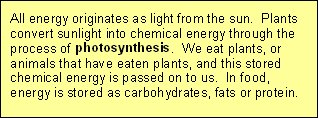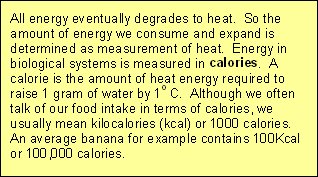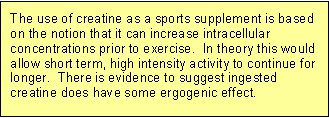Understanding energy systems underpins the study of exercise and the effect it has on the human body.
Bioenergetics… or the study of energy flow through living systems is usually one of the first chapters in any good exercise physiology text. But the current model of human energy systems is being challenged…
Recent research and practical experience expose its limitations, in particular with regard to fatigue.
This article outlines the three basic energy pathways, their interactions with one another and their relevance to different sporting activities. It finishes with a brief look at some of the more recent research and subsequent new models of human energy dynamics that have been proposed as a result.
ATP The Bodys Energy Currency

Energy is required for all kinds of bodily processes including growth and development, repair, the transport of various substances between cells and of course, muscle contraction. It is this last area that Exercise Scientists are most interested in when they talk about energy systems.
Whether it’s during a 26-mile marathon run or one explosive movement like a tennis serve, skeletal muscle is powered by one and only one compound… adenosine triphosphate (ATP) (2). However, the body stores only a small quantity of this ‘energy currency’ within the cells and its enough to power just a few seconds of all-out exercise (5). So the body must replace or resynthesize ATP on an ongoing basis. Understanding how it does this is the key to understanding energy systems.
An ATP molecule consists of adenosine and three (tri) inorganic phosphate groups. When a molecule of ATP is combined with water (a process called hydrolysis), the last phosphate group splits away and releases energy. The molecule of adenosine triphosphate now becomes adenosine diphosphate or ADP (2).

To replenish the limited stores of ATP, chemical reactions add a phosphate group back to ADP to create ATP. This process is called phosphorylation. If this occurs in the presence of oxygen it is labelled aerobic metabolism or oxidative phosphorylation. If it occurs without oxygen it is labelled anaerobic metabolism (2).
Energy Sources to Replenish ATP
Several energy sources or substrates are available which can be used to power the production of ATP. One of these substrates, like existing ATP, is stored inside the cell and is called creatine phosphate.

Creatine Phosphate
Creatine phosphate is readily available to the cells and rapidly produces ATP. It also exists in limited concentrations and it is estimated that there is only about 100g of ATP and about 120g of creatine phosphate stored in the body, mostly within the muscles. Together ATP and creatine phosphate are called the high-energy phosphogens (1).
Fat
The other substrates that can the body can use to produce ATP include fat, carbohydrate and protein. Fat is stored predominantly as adipose tissue throughout the body and is a substantial energy reservoir. Fat is less accessible for cellular metabolism as it must first be reduced from its complex form, triglyceride, to the simpler components of glycerol and free fatty acids. So although fat acts as a vast stockpile of fuel, energy release is too slow for very intense activity (5).
Carbohydrate
Unlike fat, carbohydrate is not stored in peripheral deposits throughout the body. At rest, carbohydrate is taken up by the muscles and liver and converted into glycogen. Glycogen can be used to form ATP and in the liver it can be converted into glucose and transported to the muscles via the blood. A heavy training session can deplete carbohydrate stores in the muscles and liver, as can a restriction in dietary intake. Carbohydrate can release energy much more quickly than fat (5).
Protein
Protein is used as a source of energy, particularly during prolonged activity, however it must first be broken down into amino acids before then being converted into glucose. As with, fat, protein cannot supply energy at the same rate as carbohydrate. The rate at which is energy is released from the substrates is determined by a number of factors. For example, if there are large amounts of one type of fuel available, the body may rely more on this source than on others. The mass action effect is used to describe this phenomenon (5).
The Three Energy Systems
There are three separate energy systems through which ATP can be produced. A number of factors determine which of these energy systems is chosen, such as exercise intensity for example.
The ATP-PCr System
ATP and creatine phosphate (also called phosphocreatine or PCr for short) make up the ATP-PCr system. PCr is broken down releasing a phosphate and energy, which is then used to rebuild ATP. Recall, that ATP is rebuilt by adding a phosphate to ADP in a process called phosphorylation. The enzyme that controls the break down of PCr is called creatine kinase (5).

The ATP-PCr energy system can operate with or without oxygen but because it doesnt rely on the presence of oxygen it said to be anaerobic. During the first 5 seconds of exercise regardless of intensity, the ATP-PCr is relied on almost exclusively. ATP concentrations last only a few seconds with PCr buffering the drop in ATP for another 5-8 seconds or so. Combined, the ATP-PCr system can sustain all-out exercise for 3-15 seconds and it is during this time that the potential rate for power output is at its greatest (1).
If activity continues beyond this immediate period, the body must rely on another energy system to produce ATP
The Glycolytic System
Glycolysis literally means the breakdown (lysis) of glucose and consists of a series of enzymatic reactions. Remember that the carbohydrates we eat supply the body with glucose, which can be stored as glycogen in the muscles or liver for later use.
The end product of glycolysis is pyruvic acid. Pyruvic acid can then be either funnelled through a process called the Krebs cycle (see the Oxidative System below) or converted into lactic acid. Traditionally, if the final product was lactic acid, the process was labelled anaerobicglycolysis and if the final product remained as pyruvate the process was labelled aerobicglycolysis.
However, oxygen availability only determines the fate of the end product and is not required for the actual process of glycolysis itself. In fact, oxygen availability has been shown to have little to do with which of the two end products, lactate or pyruvate is produced. Hence the terms aerobic meaning with oxygen and anaerobic meaning without oxygen become a bit misleading (5).
Alternative terms that are often used are fast glycolysis if the final product is lactic acid and slow glycolysis for the process that leads to pyruvate being funnelled through the Krebs cycle. As its name would suggest the fast glycolitic system can produce energy at a greater rate than slow glycolysis. However, because the end product of fast glycolysis is lactic acid, it can quickly accumulate and is thought to lead to muscular fatigue (1).

The contribution of the fast glycolytic system increases rapidly after the initial 10 seconds of exercise. This also coincides with a drop in maximal power output as the immediately available phosphogens, ATP and PCr, begin to run out. By about 30 seconds of sustained activity the majority of energy comes from fast glycolysis (2).
At 45 seconds of sustained activity there is a second decline in power output (the first decline being after about 10 seconds). Activity beyond this point corresponds with a growing reliance on the
The Oxidative System
The oxidative system consists four processes to produce ATP:
- Slow glycolysis (aerobic glycolysis)
- Krebs cycle (citric acid cycle or tricarboxylic acid cycle)
- Electron transport chain
- Beta oxidation
Slow glycolysis is exactly the same series of reactions as fast glycolysis that metabolise glucose to form two ATPs. The difference, however, is that the end product pyruvic acid is converted into a substance called acetyl coenzyme A rather than lactic acid (5). Following glycolysis, further ATP can be produced by funnelling acetyl coenzyme A through the
Krebs Cycle
The Krebs cycle is a complex series of chemical reactions that continues the oxidization of glucose that was started during glycolysis. Acetyl coenzyme A enters the Krebs cycle and is broken down in to carbon dioxide and hydrogen allowing more two more ATPs to be formed. However, the hydrogen produced in the Krebs cycle plus the hydrogen produced during glycolysis, left unchecked would cause cells to become too acidic (2). So hydrogen combines with two enzymes called NADand FAD and is transported to the
Electron Transport Chain
Hydrogen is carried to the electron transport chain, another series of chemical reactions, and here it combines with oxygen to form water thus preventing acidification. This chain, which requires the presence of oxygen, also results in 34 ATPs being formed (2).
Beta Oxidation
Unlike glycolysis, the Krebs cycle and electron transport chain can metabolise fat as well as carbohydrate to produce ATP. Lipolysis is the term used to describe the breakdown of fat (triglycerides) into the more basic units of glycerol and free fatty acids (2).
Before these free fatty acids can enter the Krebs cycle they must undergo a process of beta oxidation… a series of reactions to further reduce free fatty acids to acetyl coenzyme A and hydrogen. Acetyl coenzyme A can now enter the Krebs cycle and from this point on, fat metabolism follows the same path as carbohydrate metabolism (5).
Fat Metabolism
So to recap, the oxidative system can produce ATP through either fat (fatty acids) or carbohydrate (glucose). The key difference is that complete combustion of a fatty acid molecule produces significantly more acetyl coenzyme A and hydrogen (and hence ATP) compared to a glucose molecule. However, because fatty acids consist of more carbon atoms than glucose, they require more oxygen for their combustion (2).
So if your body is to use fat for fuel it must have sufficient oxygen supply to meet the demands of exercise. If exercise is intense and the cardiovascular system is unable to supply cells with oxygen quickly enough, carbohydrate must be used to produce ATP. Put another way, if you run out of carbohydrate stores (as in long duration events), exercise intensity must reduce as the body switches to fat as its primary source of fuel.
Protein Metabolism
Protein is thought to make only a small contribution (usually no more 5%) to energy production and is often overlooked. However, amino acids, the building blocks of protein, can be either converted into glucose or into other intermediates used by the Krebs cycle such as acetyl coenzyme A. Protein may make a more significant contribution during very prolonged activity, perhaps as much as 18% of total energy requirements (1).
The oxidative system as a whole is used primarily during rest and low-intensity exercise. At the start of exercise it takes about 90 seconds for the oxidative system to produce its maximal power output and training can help to make this transition earlier (1).
Beyond this point the Krebs cycle supplies the majority of energy requirements but slow glycolysis still makes a significant contribution. In fact, slow glycolysis is an important metabolic pathway even during events lasting several hours or more (2).
Energy Systems & Training
Each of the three energy systems can generate power to different capacities and varies within individuals. Best estimates suggest that the ATP-PCR systme can generate energy at a rate of roughly 36 kcal per minute. Glycolysis can generate energy only half as quickly at about 16 kcal per minute. The oxidative system has the lowest rate of power output at about 10 kcal per minute (4).
The capacity to generate power of each the three energy systems can vary with training. The ATP-PCr and glycolytic pathways may change by only 10-20% with training. The oxidative system seems to be far more trainable although genetics play a limiting role here too. VO2max, or aerobic power can be increased by as much as 50% but this is usually in untrained, sedentary individuals (4).
Energy Systems Used in Sports
The three energy systems do not work independently of one another. From very short, very intense exercise, to very light, prolonged activity, all three energy systems make a contribution however, one or two will usually predominate (5).
Two factors of any activity carried out affect energy systems more than any other variable they are the intensity and duration of exercise. Here is a list of sports and approximately how the each of the energy systems contributes to meet the physical demands:

A New Model for Energy Systems?
In the year 2000, Noakes and colleagues (3) questioned the classical model of energy systems. Their argument was based on the limitations this model has when it comes to explaining fatigue. In particular, the general concept that fatigue develops only when the cardiovascular system’s capacity to supply oxygen falls behind demand (therefore initiating anaerobic metabolism) is seen as overly simplistic. More specifically, their argument centered around 5 key issues:
i) The heart and not skeletal muscle would be affected first by anaerobic metabolism.
ii) No study has definitively found a presence of anaerobic metabolism and hypoxia (lack of oxygen) in skeletal muscle during maximal exercise.
iii) The traditional model is unable to explain why fatigue ensues during prolonged exercise, at altitude and in hot conditions.
iv) Cardiorespiratory and metabolic measures such as VO2max and lactate threshold are only modest predictors of performance.
Undoubtedly, fatigue is a complex subject that can result from a range of physical and psychological factors. In an attempt to produce a more holistic explanation, Noakes developed a model that consisted of five sub-models:
i) The classical ‘cardiovascular / anaerobic’ model as it stands now.
ii) The energy supply / energy depletion model.
iii) The muscle recruitment (central fatigue) / muscle power model.
iv) The biomechanical model.
v) The psychological / motivational model.
Essentially this new model of energy systems recognizes what coaches have witnessed for decades… that performance and fatigue is multifactoral and complex. It adds strength to the synergistic and holistic approach to sport usually found in the most successful athletes.
References
1) Baechle TR and Earle RW. (2000) Essentials of Strength Training and Conditioning: 2nd Edition. Champaign, IL: Human Kinetics
2) McArdle WD, Katch FI and Katch VL. (2000) Essentials of Exercise Physiology: 2nd Edition Philadelphia, PA: Lippincott Williams & Wilkins
3) Noakes TD. (2000) Physiological models to understand exercise fatigue and the adaptations that predict or enhance athletic performance. Scandinavian Journal of Medicine and Science in Sports. 10, 123-145
4) Stager Jm and Tanner DA. (2005) Swimming: 2nd Edition; An International Olympic Committee Publication. Oxford UK: Blackwell Scinece Ltd
5) Wilmore JH and Costill DL. (2005) Physiology of Sport and Exercise: 3rd Edition. Champaign, IL: Human Kinetics

Jacky has a degree in Sports Science and is a Certified Sports and Conditioning Coach. He has also worked with clients around the world as a personal trainer.
He has been fortunate enough to work with a wide range of people from very different ends of the fitness spectrum. Through promoting positive health changes with diet and exercise, he has helped patients recover from aging-related and other otherwise debilitating diseases.
He spends most of his time these days writing fitness-related content of some form or another. He still likes to work with people on a one-to-one basis – he just doesn’t get up at 5am to see clients anymore.